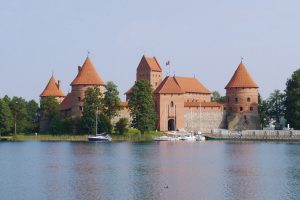Malta may have to drop veto on EU sports betting convention

The island may need to withdraw its veto to win the approval of the EU’s Financial Action Task Force.
Malta.- The igaming hub of Malta may have to drop its veto on an EU sports betting convention in order to gain approval from the Financial Action Task Force (FATF).
FATF is due to decide whether or not to place Malta on a “grey list” of untrustworthy financial jurisdictions. It’s been reported that a deciding factor may be the country’s longstanding veto of the Macolin Convention on the manipulation of sports.
Malta has vetoed the convention since 2014 due to its disagreement with the definition of “illegal sports betting”. The veto has resulted in an institutional stalemate at the Council of Europe’s parliamentary assembly, preventing the European Commission from signing the convention on behalf of the EU’s 28 member states.
Malta objects to the definition of “illegal sports betting” because it says the article would make sports betting activity in any state illegal if the applicable law of the betting consumer’s jurisdiction considers it so.
If ratified, Malta fears that would mean that gaming operators licensed in Malta could be prevented from expanding operations abroad unless they abide by the laws of the other EU member states.
Malta’s rules on remote betting allow companies based on the island to offer gaming services across Europe under a Malta Gaming Authority (MGA) licence. The change in EU law could spell an end to that free movement as companies might have to apply for licences in different member states, with the licensing costs that involves.
Malta also argues that the definition of illegal sports betting is an unnecessary intrusion into gaming regulation.
It fears the change could extend beyond sports betting to other gaming verticals such as online casino. Malta also insists that the MGA’s sports integrity unit already has the tools necessary to tackle suspicious betting.
It wants the definition of “illegal sports betting” to refer only to the manipulation of sports competitions within the context of the Macolin Convention.
However, Malta’s need to avoid a potential “grey-listing” could mean that it has to give in.
Two years ago, Malta failed to pass the test of anti-money laundering regulations carried out by Moneyval, the Council of Europe’s expert anti-money laundering monitoring committee.That put the country in danger of being grey-listed as a risky jurisdiction.
Malta was given a list of measures to implement, the progress on which the FATF will now review. The FATF is due to make a decision on Malta on June 15.
Malta Today quoted a senior government source as saying: “We will probably have to bow our head and just get on with it.”
However, another source said Malta’s government was still seeking clarification on the matter.
Malta Gaming Authority to lower minimum RTP for igaming
The MGA has announced that it will lower the minimum return-to-player (RTP) percentage on online random number generator games from 92 per cent to 85 per cent.
The change brings the limit for online casino in line with Malta’s land-based sector.
The MGA said the move would give operators and suppliers flexibility when offering games in jurisdictions that have high tax rates, helping to avoid the need for each game to be substantially adapted.
Suppliers are likely to use the change to produce games with lower RTPs for jurisdictions with high tax rates, such as Germany, where the tax rate for the new online gaming market has been set at 5.3 per cent on online slots turnover. Suppliers said it could take several weeks to implement the change.
In April, the MGA promoted Ryan Pace to chairman of the regulator’s board. Pace had been deputy chairman since last June.











